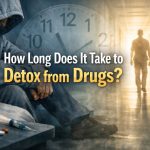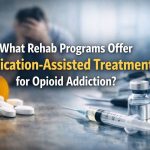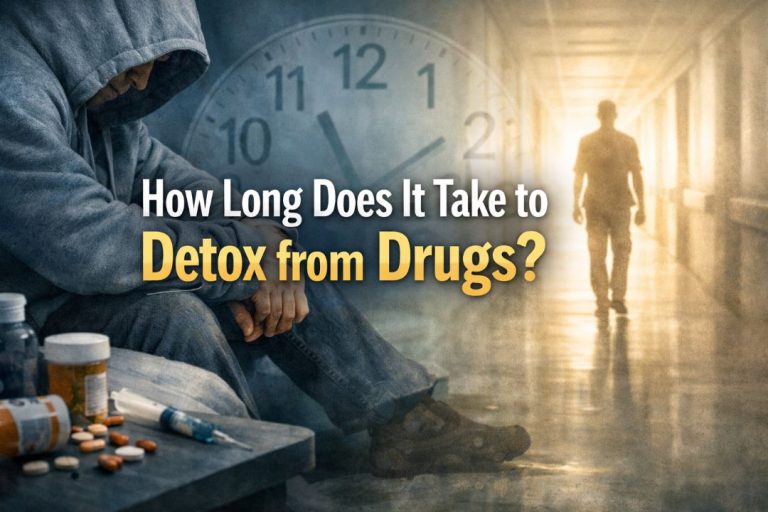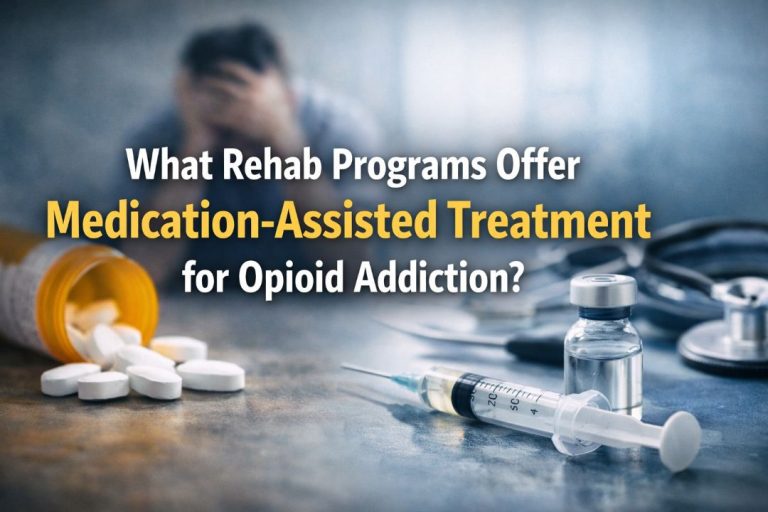Persistent Depressive Disorder (PDD) is a long-term and persistent form of depression lasting two and above years. Individuals who are affected by this condition tend to feel low in their moods most of the time even in a situation in which the things in life appear to be relatively stable. PPD cannot be cured within a short time as compared to major depression episode hence unlike paroxysmal depression, PPD is chronic and leaves one with sadness or emptiness which can interfere with normal operations.
PDD, notwithstanding its chronic nature, can still be treated when the combination of therapy, medication, and support is used. Professional care and early detection can do wonders in respect to stabilizing the emotional state and improving the overall quality of life in the long-run.
What is Persistent Depressive Disorder (PDD)?
Persistent Depressive Disorder (PDD) is a type of chronic depression that is a resultant syndrome of major depressive disorder and dysthymia.Individuals with PDD suffer mood lowness, which lasts most days and almost daily, at least two years.
PPD is also unlike temporary sadness or situational depression in that it does not improve easily even in situations where there is positivity. The disorder may cause one to experience difficulty in experiencing happiness or optimism and this causes exhaustion, impatience and an overall feeling of despair.
Although the symptoms can be mild unlike those of major depressive episodes, the duration can be very difficult to endure without professional assistance, therefore, persistent depression disorder.
What are the Symptoms of Persistent Depressive Disorder?
The persistent depressive disorder symptoms tend to be milder and prolonged and usually overlap with those of major depression. A large number of individuals with PDD will seem to work well but internally, they are battling with constant sadness.
The persistent depressive disorder may be characterized by common symptoms such as:
- Constant depression, gloom, or despair.
- Fatigue or low energy levels
- Low self-esteem or self-worth
- Problem with concentration or decision-making.
- Alteration of the appetite (overeating or loss of appetite)
- Sleep (insomnia or oversleeping) problems.
- Frustration or irritability.
- Stopping doing things that one used to enjoy.
- Constant opposition to negativity or pessimism.
Persistent symptoms of depression disorder in children and teenagers may be manifested through the manifestation of irritability, poor performance in school, or lack of motivation. Adults can find themselves lost in life, troubled in relationships, or lacking drive at work.
The symptoms can also cause a person to fail to realize that they are experiencing a clinical condition, simply because the symptoms build up over time and people just choose to think that this is how they are supposed to be. This has an especial importance on diagnosis and treatment.
100% Confidential Support is Available 24/7
No matter what you’re going through, you’re not alone. Our dedicated team is here to provide a safe, judgment-free space where you can talk openly and honestly. Whether you need emotional support, resources, or just someone to listen.
We’re here for you—completely confidential and always respectful of your privacy. Call us today!
What Causes Persistent Depressive Disorder?
Persistent depressive disorder has multifaceted causes, which in most cases tend to entail a mix of biological, psychological, and environmental conditions.
Part of the usual contributors is:
- Genetics:
Depression or mood disorder in the family can be a risk factor for PDD. - Brain Chemistry:
The mood can be deregulated due to imbalances in neurotransmitters such as serotonin and dopamine, and this element may cause a lasting depressive effect. - Trauma and Stress:
Long-term stress, unresolved trauma, or other negative life experiences, such as abuse, neglect, or loss, may trigger or aggravate chronic depression. - Personality Traits:
Individuals who have low self-esteem and are overdependent or tend to be pessimistic might be exposed to the risk of developing PDD. - Medical Conditions and Medications:
Chronic health problems, some medications, or hormonal disorders may also cause persistent depressive symptoms.
The knowledge of such underlying factors can assist clinicians in developing tailored treatments of persistent depressive disorder, which targets emotional and biological causes of depression.
Contact Solutions Healthcare
Battling with Drug and Alcohol Addition? Remember, you are not alone and we are here to help you!
How is Persistent Depressive Disorder Treated?
Persistent depressive disorder can be treated through management of symptoms, enhancing emotional health, and preventing relapse prevention of the disease. Although it may take a long time to recover, with regular treatment, improvement can be achieved and long-term stability can be achieved.
The following are the best treatments of persistent depressive disorder:
1. Psychotherapy (Talk Therapy)
One of the most effective perspectives of the depressive disorder that can be used is psychotherapy, particularly Cognitive Behavioral Therapy (CBT). CBT is used to assist the person to recognize and replace negative thinking styles, acquire better coping strategies and re-evaluate their views.
Other therapeutic approaches include:
- Interpersonal Therapy (IPT): It is based on the focus of improving relationships and social performance.
- Dialectical Behavior Therapy (DBT): It is a mindfulness treatment style that involves emotion regulation techniques.
- Psychodynamic Therapy: Solves emotional conflicts and past experiences that lead to present distress which are unresolved.
2. Medication
Antidepressants have the ability to correct the chemical imbalances in the brain. In general, they are prescribed to include:
- Selective Serotonin reuptake inhibitor (SSRI) like sertraline or fluoxetine.
- Serotonin-Norepinephrine Reuptake Inhibitors (SNRIs) e.g. venlafaxine or duloxetine
- More resistant cases Tricyclic Antidepressants (TCAs)
A mental health practitioner pays close attention to the use of medication in order to control side effects and be effective.
3. Lifestyle Changes and Self-Care
Efforts to maintain a healthy everyday routine are crucial in the recovery process:
- Have a normal sleeping and eating schedule.
- Engage in physical exercise
- Limit alcohol or drug use
- Be mindful/mindful meditation.
- Establish favorable social network.
The practices have the potential of improving mood stability as a supplement to professional treatment.
4. Support Groups and Ongoing Care
Joining support groups or continuous counseling gives the feeling of community and responsibility. The long-term care provides the patients with the assurance that they remain on course with the recovery and evolve the ability to resist the depressive symptoms.

Care at Solutions Healthcare
Solutions Healthcare knows how overwhelming persistent depressive disorder may be to live with- but there is a way to heel. Our caring staff focuses on evidence-based treatment and individual treatment plans, which are customized to the needs of the individual.
We offer a secure, positive space in which we give the clients the opportunity to find out what causes them to experience depression and the means to attain long-term emotional stability. It may be psychotherapy or medication control, or holistic wellness programs, but we strive to get you back on track and have you find a sense of purpose.
When we have depression that is persistent and something that is troubling you or your loved one, then do not wait till it gets worse. Get Solutions Healthcare by your side and our caring professionals will provide you with all the guidance you need.
Pick up the phone and call us (386) 866-3600 today to begin living your dream life of being recovered and at peace.
Frequently Asked Questions (FAQs)
1. What does dysthymia feel like?
Dysthymia or persistent depressive disorder is usually characterized by living under an emotional cloud all the time. One can feel low mood, demotivation, energy loss, and hopelessness that can be felt years. Life may continue as it was, but joy and satisfaction tends to be faded or completely absent.
2. What is a persistent depressive disorder?
Persistent depressive disorder (PDD) is the two year plus chronic depression. It is marked by constant depression, lack of energy and poor enthusiasm about life. Symptoms are not severe like major depression, however, their protracted nature may have a remarkable effect on everyday functioning.
3. What is the difference between depression and dysthymia?
The central distinction is in the length and severity. Major depression is characterized by serious symptoms that appear in episodes and last up to weeks or months whereas dysthymia (PDD) is characterized by mild symptoms that last throughout the years. Others can have both disorders and they are referred to as having double depression.
4. What happens if dysthymia is left untreated?
Dysthymia may cause symptoms to become worse, self-esteem to decline, major depressive episodes or even suicidal feelings, if unattended. It can also impact on relationships, job performance, and health. These complications can be prevented by early treatment and increase the quality of life.
5. What is the hardest mental illness to live with?
All the mental illnesses pose their own difficulties, yet diseases such as schizophrenia, borderline personality disorder, and severe depression are usually regarded as some of the most challenging to experience because of chronical and life-changing aspects. Nevertheless, even the most complicated diseases may be treated successfully with the help and assistance.






















